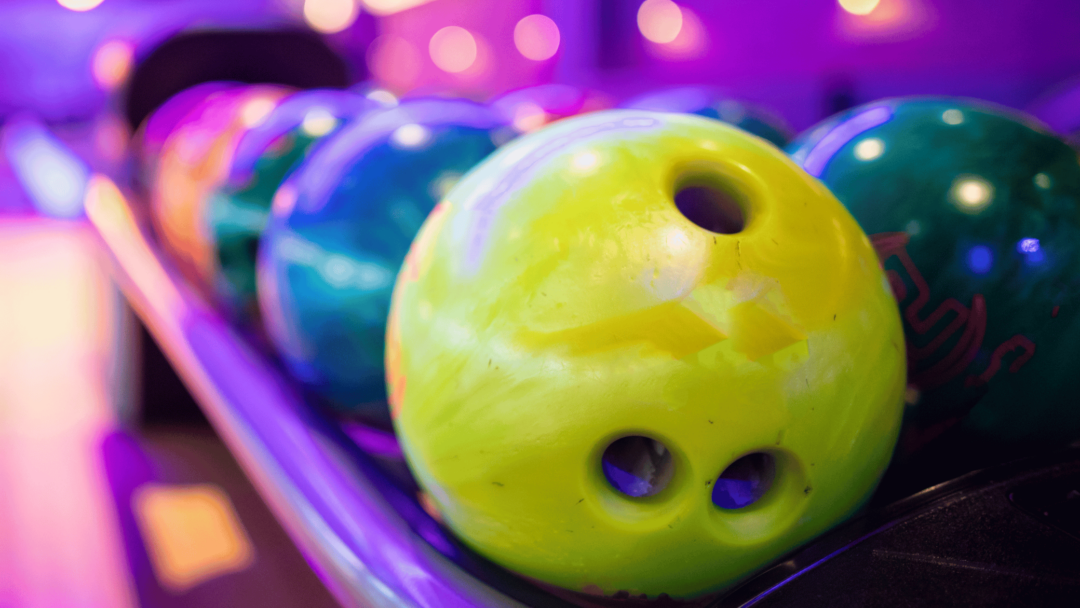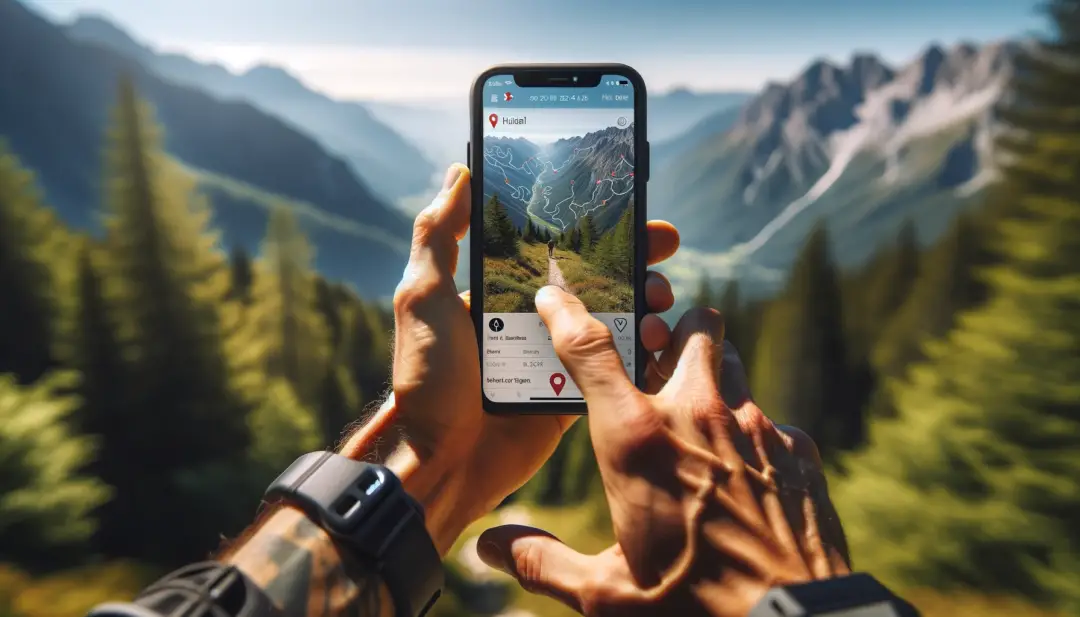Australia is a land of diverse landscapes and vibrant cultures. Its people demonstrate this diversity through a wide range of hobbies.
From the relaxing pastime of gardening, which ranks as the most popular hobby, to the more communal activity of fishing, Australians engage in activities that reflect their love for the outdoors and connection to nature. Gardening, in particular, not only provides a respite from daily stress but also allows you to contribute meaningfully to local biodiversity.
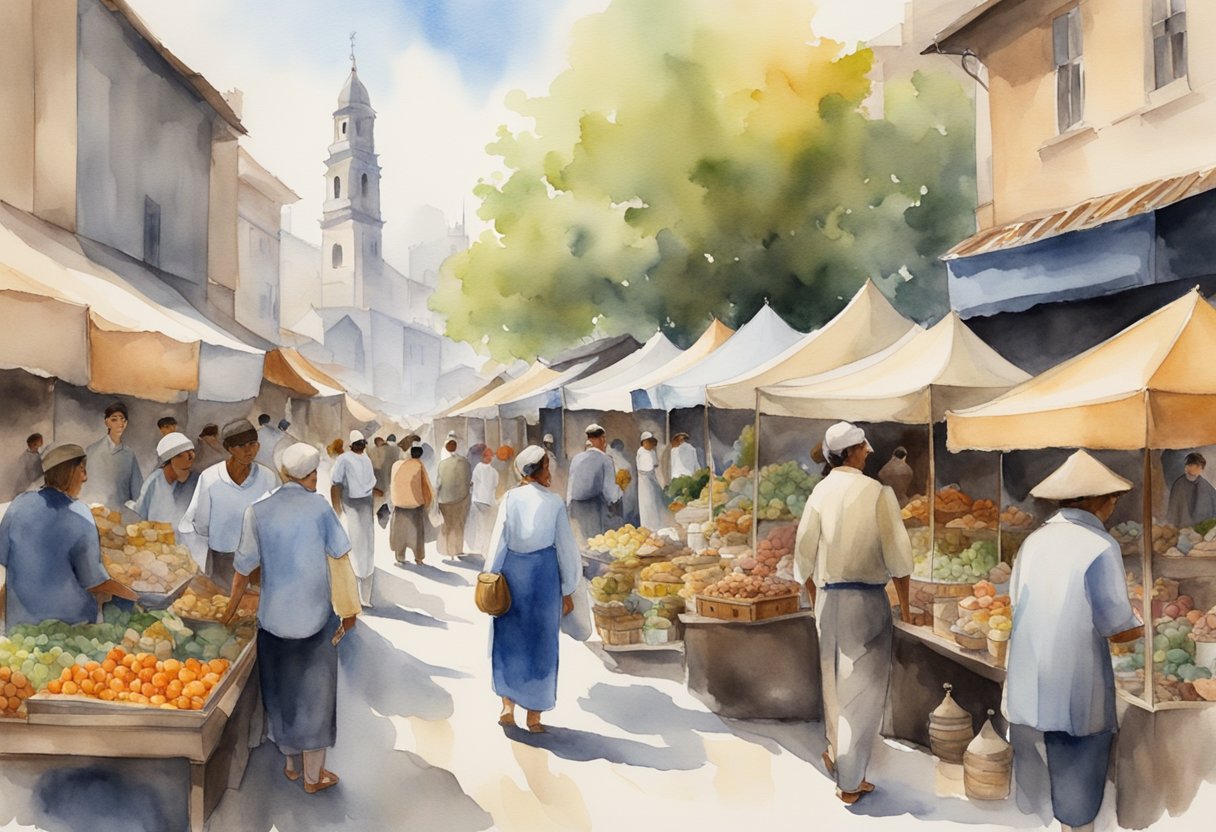
In addition to gardening, you’ll find that leisurely pursuits like reading and cooking/baking are among the top activities enjoyed by Australians. These hobbies offer a glimpse into how Australians value both relaxation and creativity in their day-to-day lives.
For those looking to immerse themselves more deeply in Australia’s culture, you might consider taking up fishing, a hobby easily accessible and deeply ingrained in the coastal lifestyle.
Exploring these hobbies provides a window into the national identity and cultural fabric of the country. Whether you’re interested in picking up a new skill or simply looking to understand more about what makes Australia unique, delving into these activities is a great way to start. By engaging in these popular pastimes, you not only enrich your own life but also become part of the cultural tapestry that defines Australia.
Cultural Fabric of Australian Hobbies
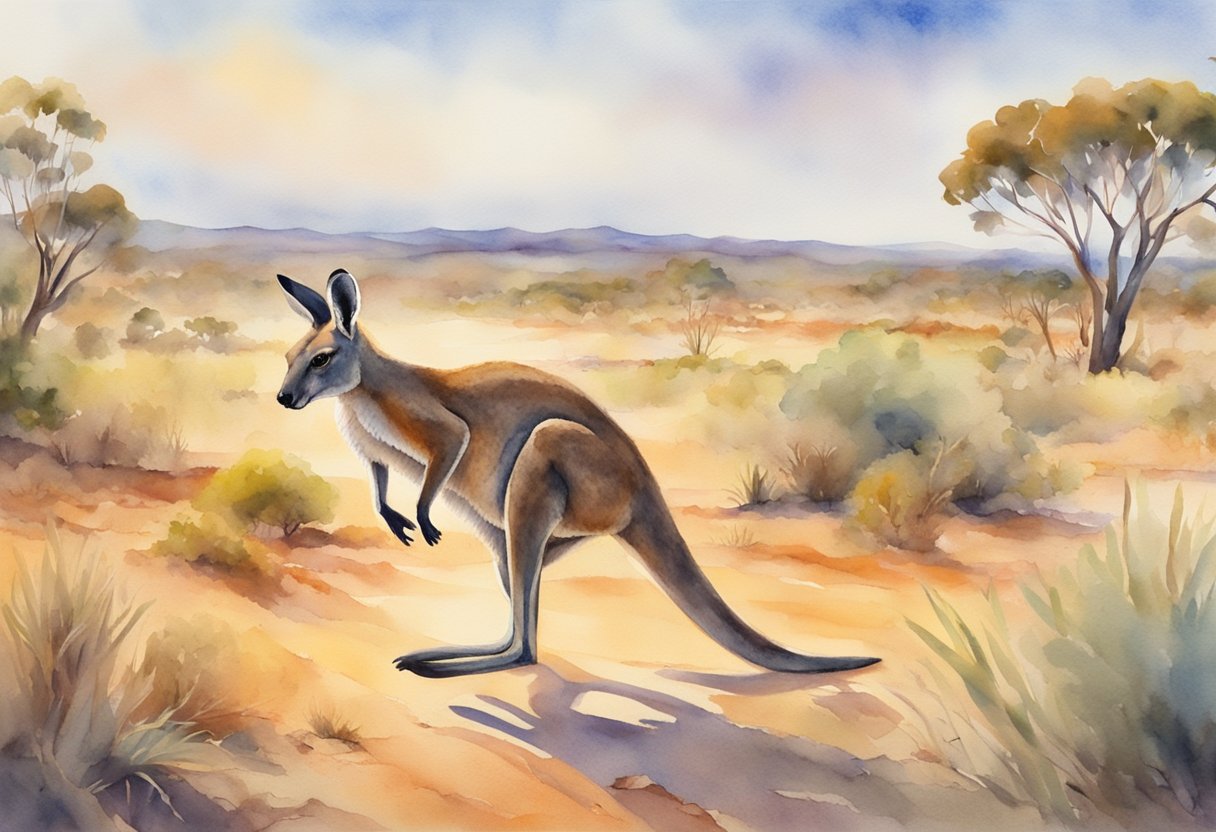
Australian hobbies are deeply intertwined with the nation’s cultural heritage, playing a crucial role in shaping its national identity. Key points include the significant influence of sports, connections to artistic expressions, and the role of leisure activities in fostering community engagement.
The Role of Sport in Australian Culture
Sporting activities are a foundational element of Australian culture. You will find that Australians have a passion for sports such as cricket, Australian Rules Football, and rugby, which are not just games but part of the national identity.
These sports events are communal, bringing together people of all ages and backgrounds to cheer for their favorite teams and athletes. The popularity of these sports is evident in massive turnouts at stadiums and widespread participation in local clubs.
Sports also act as a social glue, enabling Aussies to connect and bond over shared experiences. Whether it is the camaraderie at a weekend cricket match or the electric atmosphere of the Australian Football League finals, the cultural significance of sports cannot be overstated.
Artistic Endeavors and Cultural Identity
Artistic activities are another integral part of the Australian cultural landscape. You’ll find that painting, music, and dance are not only hobbies but also expressions of cultural identity and heritage.
The influence of Indigenous art is particularly significant, with Aboriginal paintings, storytelling, and dance highlighting Australia’s rich history.
Contemporary art scenes flourish in cities like Melbourne and Sydney, where galleries and street art celebrate both traditional and modern styles. These artistic endeavors often reflect societal themes and can be seen in public art installations, exhibitions, and festivals.
Participating in or appreciating these activities allows you to engage deeply with Australian culture, revealing a tapestry of influences and artistic legacy that continues to evolve.
Leisure Activities and Community Engagement
Leisure activities in Australia are closely tied to community life and engagement.
Gardening, for instance, is the most popular hobby among Australians, reflecting a connection to the land and a tradition of outdoor living.
You can find community gardens that not only provide space to grow plants but also bring neighbors together.
Cooking and baking are other commonly enjoyed activities, often involving the community through shared meals and social gatherings. Reading clubs and local libraries serve as hubs for intellectual and social interaction, building a sense of belonging among many Australians and tourists.
These hobbies help build and maintain community ties, offering opportunities for you to form connections and participate in a vibrant, inclusive society.
Traditional and Contemporary Australian Hobbies
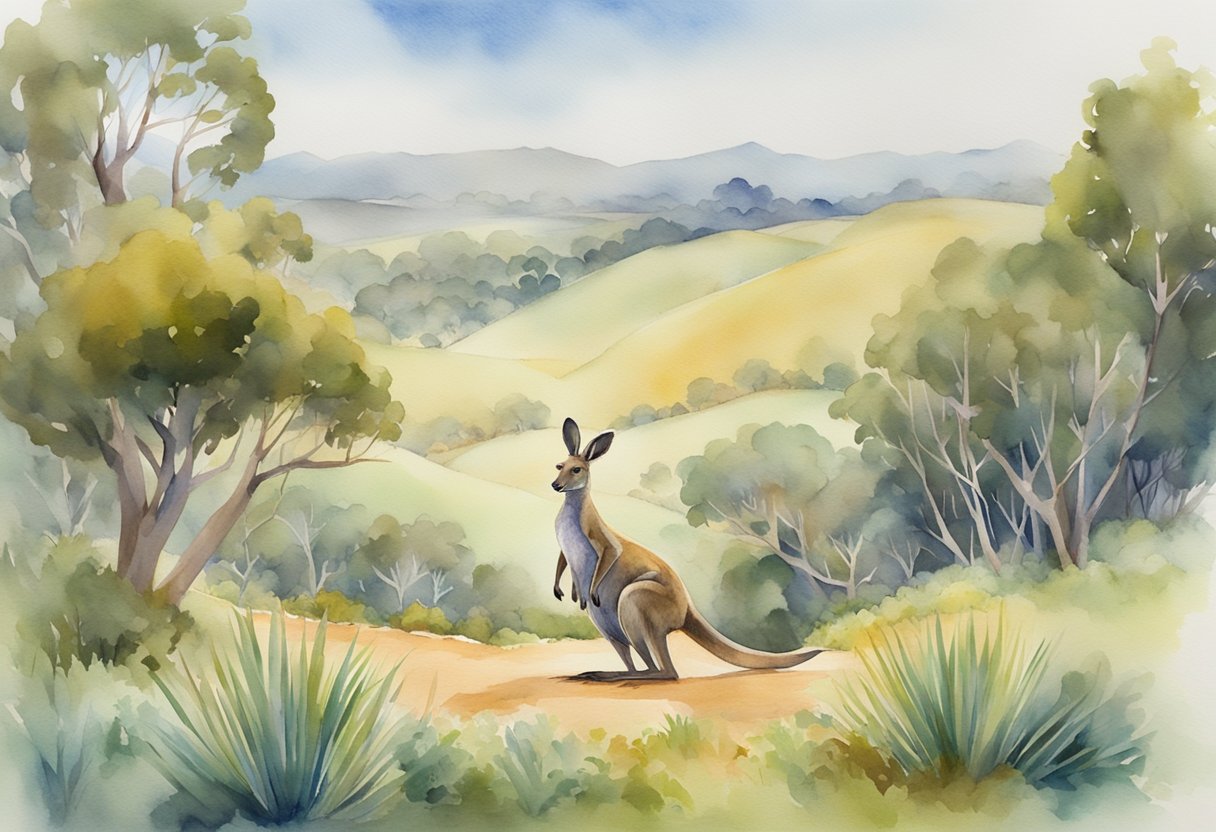
Australia boasts a diverse array of hobbies that span traditional Indigenous activities and modern pursuits. These hobbies reflect the country’s unique cultural heritage and its adaptation to contemporary interests.
Indigenous Cultural Activities
Indigenous Australians have rich cultural traditions that include activities deeply linked to their heritage and the natural environment.
Storytelling through oral traditions, dance, and music forms a core aspect of Indigenous culture. Instruments like the didgeridoo, traditionally made from eucalyptus trees, are prominent in many ceremonies. Additionally, bark painting and weaving are important artistic practices passed down through generations.
These activities are not only hobbies but also serve as a means to preserve and pass on cultural knowledge and values.
Sports also play a significant role. Traditional games such as Marn Grook, an ancient form of football, are celebrated in many communities. Playing these games is seen as a way to connect with ancestral heritage.
Bush food gathering, known as “bush tucker,” including the collection of wild fruits, nuts, and animals, remains a vital practice. These activities highlight the profound connection between Indigenous Australians and their land.
Modern Incorporations into Hobbyist Culture
Modern Australian hobbies reflect the country’s dynamic lifestyle and diverse influences.
Activities such as cooking and baking have gained immense popularity, often featuring local flavors and ingredients like seafood.
Engaging in sports is another favored pastime, with a broad spectrum ranging from cricket to rugby.
Bushwalking offers a way to explore Australia’s natural beauty, making it a beloved outdoor activity.
The digital age has also influenced hobbies. Many Australians enjoy video gaming and blogging, merging technology with leisure.
Gardening, influenced by the country’s unique flora, has become a common pursuit, encouraging Australians to cultivate native plants in their backyards.
Social hobbies such as wine tasting, often experienced in the country’s renowned wine regions, combine enjoyment with a touch of sophistication.
These hobbies showcase how Australians blend tradition with modernity, creating a rich tapestry of cultural and recreational activities.
Sports and Outdoor Activities

Australia’s love for sports and outdoor activities reflects its diverse landscapes and vibrant cultural life. From team sports like rugby and cricket to solo pursuits such as surfing and hiking, there is a rich array of options for both participants and spectators.
Team Sports and Teamwork
Australia’s sporting culture places a significant emphasis on team sports, highlighting the importance of teamwork and community.
Rugby, both rugby union and rugby league, are immensely popular, with matches drawing large crowds.
Cricket is another major pastime, especially during the summer months, fostering national pride.
Australian football, also known as AFL, is a unique sport to Australia and has a huge following.
Basketball and volleyball are also widely played and encourage coordination and collaborative skills.
Solo Sports and Personal Discipline
Solo sports provide a platform for personal discipline and focus.
Tennis is a favorite, allowing individuals to train and compete at various levels.
Golf attracts enthusiasts who enjoy the precision and patience the sport demands.
For those seeking adrenaline, skiing and snowboarding are accessible in regions like the Snowy Mountains.
Participation in these activities not only promotes physical well-being but also fosters mental resilience and self-improvement.
Water-Based Activities and Beach Culture
Australia’s extensive coastline makes it a paradise for water-based activities.
Surfing is a quintessential part of beach culture, with famous surf spots such as Bondi Beach and the Gold Coast attracting surfers from around the globe.
Other activities include swimming, snorkeling, and diving, especially around the Great Barrier Reef.
These activities combine leisure and fitness, providing a great way to enjoy Australia’s natural beauty. Beaches also serve as social hubs where you can relax and engage with the local community.
Walking and Hiking: Australia’s Scenic Trails
Australia offers numerous scenic trails perfect for walking and hiking.
From the rugged beauty of the Blue Mountains to the picturesque coastal paths along the Great Ocean Road, you’ll find trails suitable for all fitness levels.
Hiking destinations like Uluru and the Snowy Mountains provide opportunities to experience Australia’s diverse ecosystems.
Walking and hiking promote physical fitness, while also offering a chance to explore and appreciate the natural landscapes.
Art, Music, and Creative Hobbies
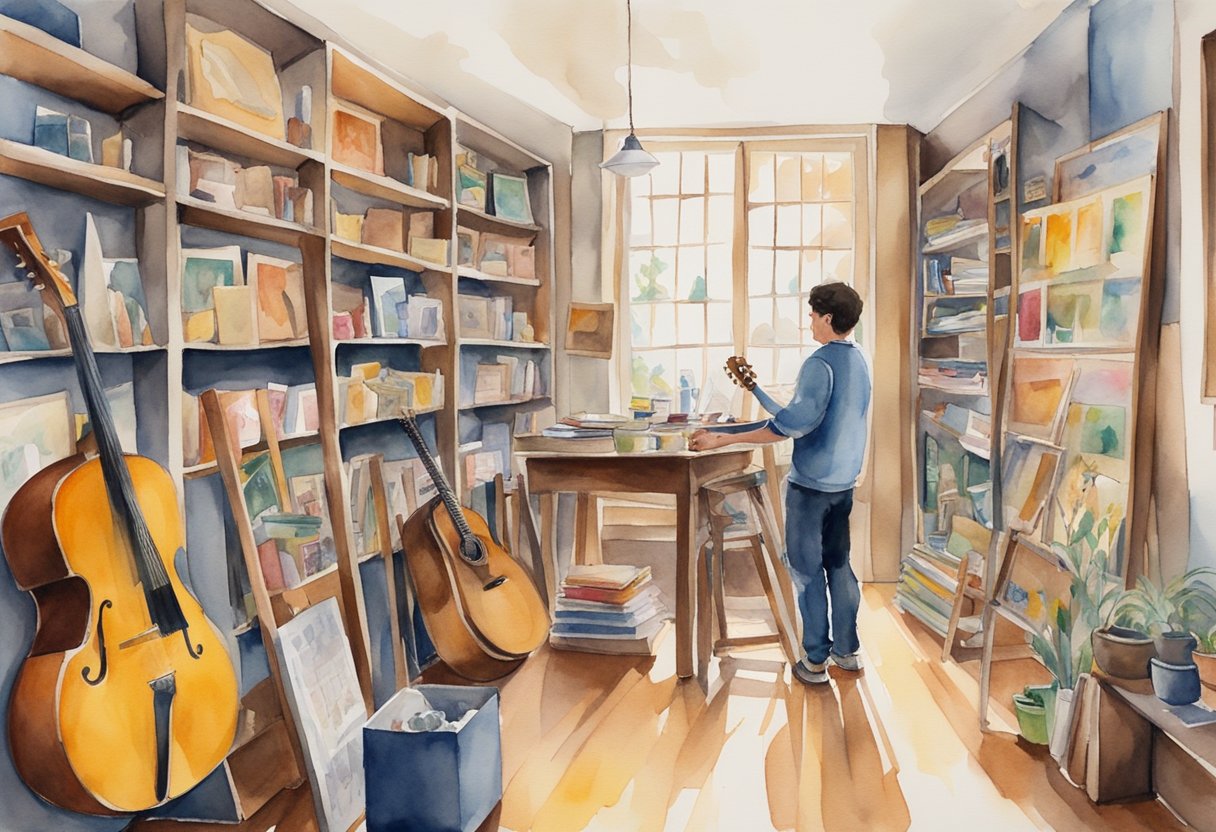
Australia’s vibrant culture is reflected in the various creative hobbies that its people partake in. From visual arts to musical pursuits, these activities provide a rich tapestry of expression and inspiration for enthusiasts.
Visual Arts and Expression
Australia is home to a thriving visual arts scene where you can explore painting, sculpture, and photography. The nation’s Aboriginal art is particularly notable, reflecting deep cultural roots and history.
Engage in community-led workshops that often teach traditional techniques and modern styles. Painting landscapes and capturing stunning moments through photography are popular due to Australia’s diverse environments.
Participation in local art exhibitions and galleries can provide inspiration and showcase your passion for creativity.
Musical Pursuits
Music forms a vital part of the Australian cultural landscape. Whether you’re interested in playing an instrument or joining a choir, there are numerous avenues to explore.
Many Australians pursue guitar, piano, and even indigenous instruments like the didgeridoo.
Joining local bands or music schools can help develop your skills. Attending live music festivals and events, such as the famous Byron Bay Bluesfest, can also fuel your passion for music.
Engage with community music projects to enhance your musical journey.
Writing and Literary Appreciation
Australia boasts a rich literary heritage with many celebrated authors. Embracing a hobby in writing or reading can connect you deeply to this tradition.
Participate in local writing groups or attend literary festivals like the Sydney Writers’ Festival.
Explore creative writing workshops that cater to all ages and skill levels. Reading Australian literature can provide valuable insights into the nation’s culture and history.
Writing poetry, novels, or short stories can be a fulfilling and expressive way to share your thoughts and experiences.
Mind and Body Wellness Activities

Engaging in mind and body wellness activities can help reduce stress, improve mental clarity, and boost physical health. Two key activities stand out for their comprehensive benefits: mindfulness and yoga practices, and martial arts centered on self-improvement.
Mindfulness and Yoga Practices
Incorporating yoga and mindfulness into your routine offers profound benefits. Yoga integrates physical postures, breathing techniques, and meditation to strengthen the body and calm the mind.
Yoga has varied styles such as Hatha, Vinyasa, and Ashtanga.
Mindfulness meditation helps you stay present and aware of your thoughts. Practices can be as simple as mindful breathing exercises or as structured as guided meditations.
Regular yoga sessions improve flexibility, strength, and reduce anxiety. Tools like the Self-Care Wheel can enhance your practice by providing structured exercises for physical, psychological, and emotional well-being.
Short retreats, such as those offered by Soma, provide an immersive experience to deepen your practice and rejuvenate your body and mind.
Martial Arts and Self-Improvement
Martial arts like karate and judo offer a disciplined approach to self-improvement. Engaging in these practices enhances physical fitness, mental acuity, and offers valuable self-defense skills.
Karate focuses on striking techniques using punches, kicks, and knee strikes. It instills discipline and boosts confidence through rigorous training and advancement through belt ranks.
Judo, on the other hand, emphasizes grappling and throws. It is known for its principle of “maximum efficiency, minimum effort,” making it suitable for individuals looking to leverage technique over brute strength.
Regular practice enhances agility, balance, and mental resilience.
Programs across Australia provide opportunities to study these arts intensively, contributing to a comprehensive approach to physical and mental wellness.
Lifestyle and Recreational Leisure
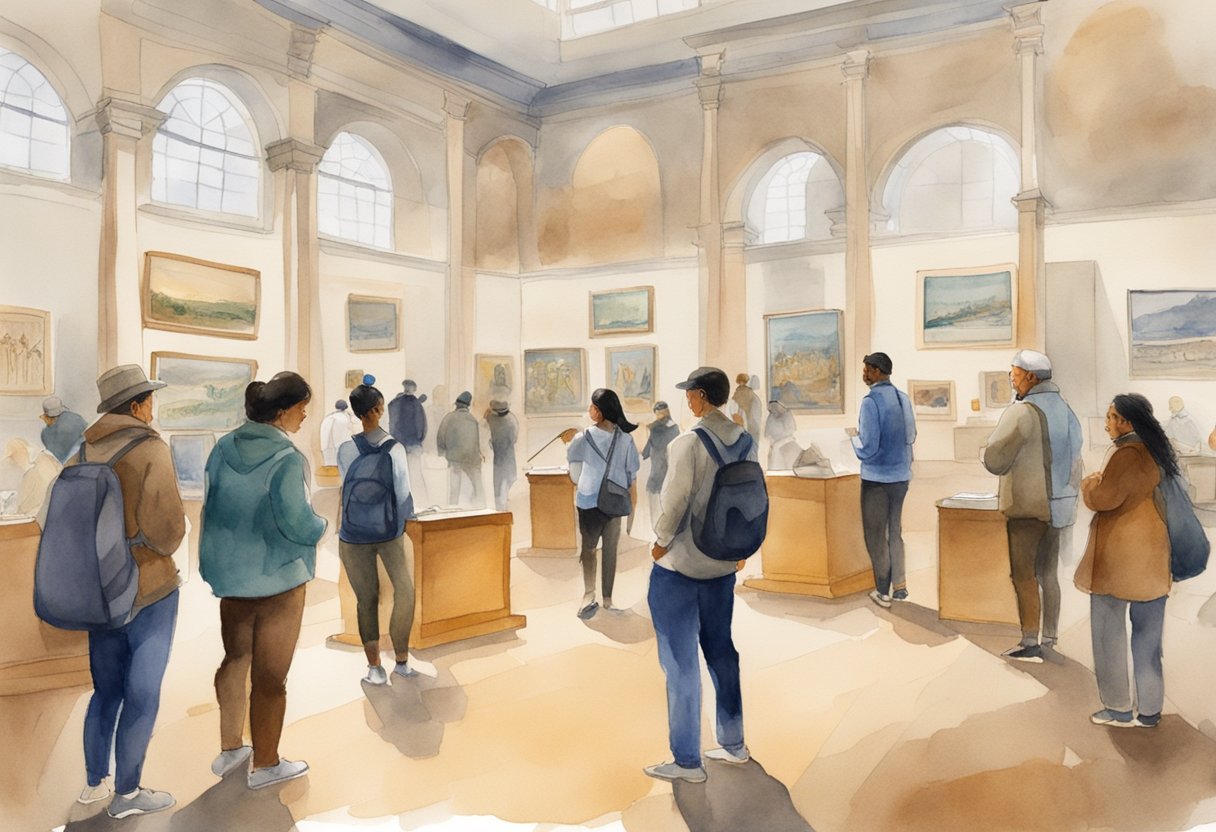
Australians engage in a variety of leisure activities that reflect their love for nature, culinary arts, and social experiences. These pursuits not only offer relaxation but also help foster a sense of community and personal fulfillment.
Gardening and Connection to Nature
Gardening is a deeply rooted activity in Australia, serving as a primary way for many to connect with nature. The country’s favorable climate allows a diverse range of plants to thrive, from native Australian flora to exotic species.
This leisure activity provides numerous benefits, including stress reduction and a sense of accomplishment. Community gardens are popular, where you can share tips and harvests with fellow gardeners.
Urban gardening and balcony gardens are also on the rise, allowing city dwellers to enjoy the perks of green spaces.
Cooking and Culinary Adventures
Cooking and baking are cherished hobbies in Australia, reflecting the nation’s multicultural influences. Engaging in these culinary activities allows you to explore flavors from around the world, as well as traditional Australian dishes.
You can enhance your kitchen skills through cooking classes and workshops available in many cities. For those who prefer independent learning, numerous online resources and recipe blogs cater to various skill levels.
Fresh, local ingredients are key, with farmers’ markets being popular spots for sourcing produce.
Shopping as a Leisure Activity
Shopping is a major leisure activity for many Australians, offering both practical and recreational benefits. The variety of shopping experiences ranges from bustling city malls to quaint local markets.
Retail therapy is widely recognized for its mood-boosting effects, and Australia’s diverse shopping districts cater to all preferences and budgets.
Shopping events and festivals, such as Sydney’s annual shopping sale, attract crowds eager to find bargains and unique items. You can also enjoy personalized shopping experiences in boutique stores, adding a touch of luxury to your leisure time.
Hobby Groups and Social Inclusivity
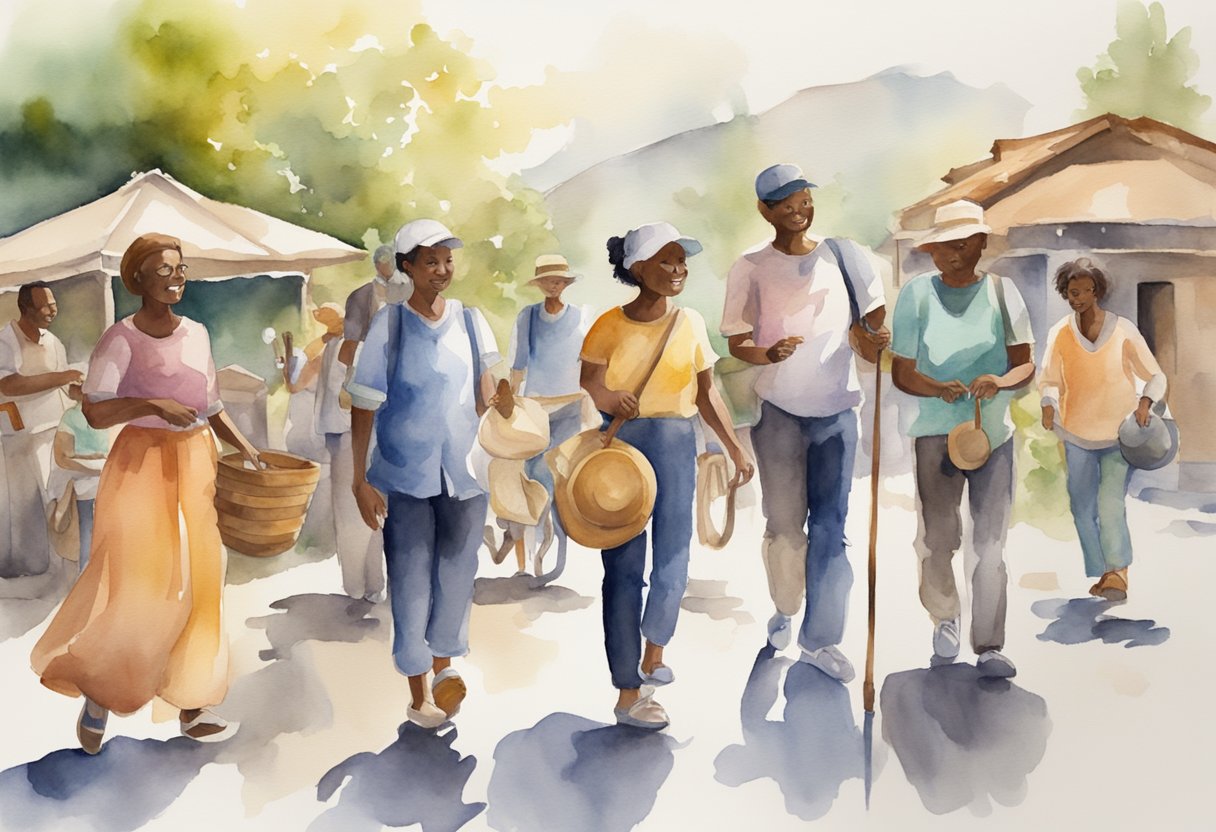
Joining hobby groups in Australia provides an excellent way to immerse yourself in local culture and society. Many communities have established hobby groups that cater to a wide range of interests, ensuring you can find something that suits you.
Community centers are often the hub for various hobby groups. They host activities like knitting, gardening, and book clubs, promoting social inclusivity.
Supportive environments make it easier for newcomers to feel welcomed and included. Many groups emphasize inclusivity, catering to diverse age groups and backgrounds.
Another venue for joining hobby groups is through online platforms. Websites like Facebook and Meetup facilitate connections among hobby enthusiasts, making it easy for you to find and join local hobby groups.
Additionally, sports clubs and recreational centers in Australia often organize team-based activities such as soccer, cricket, and tennis. These clubs promote a sense of community and teamwork.
Here’s a quick overview of popular hobby groups you can join:
| Hobby Group | Main Activities | Inclusivity Efforts |
|---|---|---|
| Gardening Clubs | Planting, Workshops | Open to all ages |
| Book Clubs | Reading, Discussions | Welcoming Newcomers |
| Sports Teams | Various Sports | Encouraging Diversity |
| Craft Circles | Knitting, Craft Making | Inclusive Environment |
Influence of the Gaming Industry and Technology

The gaming industry in Australia has significantly shaped cultural norms and recreational activities. From casual gaming to competitive esports, technology continues to influence how Australians engage with digital entertainment.
Video Gaming Culture
Video games have become a staple in many Australian homes. Over two-thirds of Australians engage in gaming, and 91% of households own a video game device.
Consoles like PlayStation are especially popular, with 81% of households using them.
Smartphones, PCs, and tablets also play a significant role. You’ll find gamers of all ages enjoying diverse genres, from action-packed adventures to strategic simulations.
The social aspect is equally important, where multiplayer games enable you to connect with friends and family.
Gaming events and conventions further bolster this culture, offering platforms for enthusiasts to explore new titles and technologies. In Australian society, video gaming is not just a pastime but a part of everyday life that fosters community and interaction.
The Popularity of Esports
Esports has seen explosive growth in Australia. Professional and amateur tournaments attract large audiences, both online and offline.
In 2021, the Australian games sector generated significant revenue, signaling robust interest in competitive gaming.
Games like “League of Legends,” “Fortnite,” and “Counter-Strike” are some of the most watched and played.
These competitions not only provide entertainment but also career opportunities for gamers, coaches, and organizers.
Esports leagues and clubs are becoming common in educational institutions, promoting skills such as teamwork, strategy, and problem-solving.
Whether you are a player or a spectator, the thriving esports scene offers an exciting and dynamic way to engage with video games.
Frequently Asked Questions
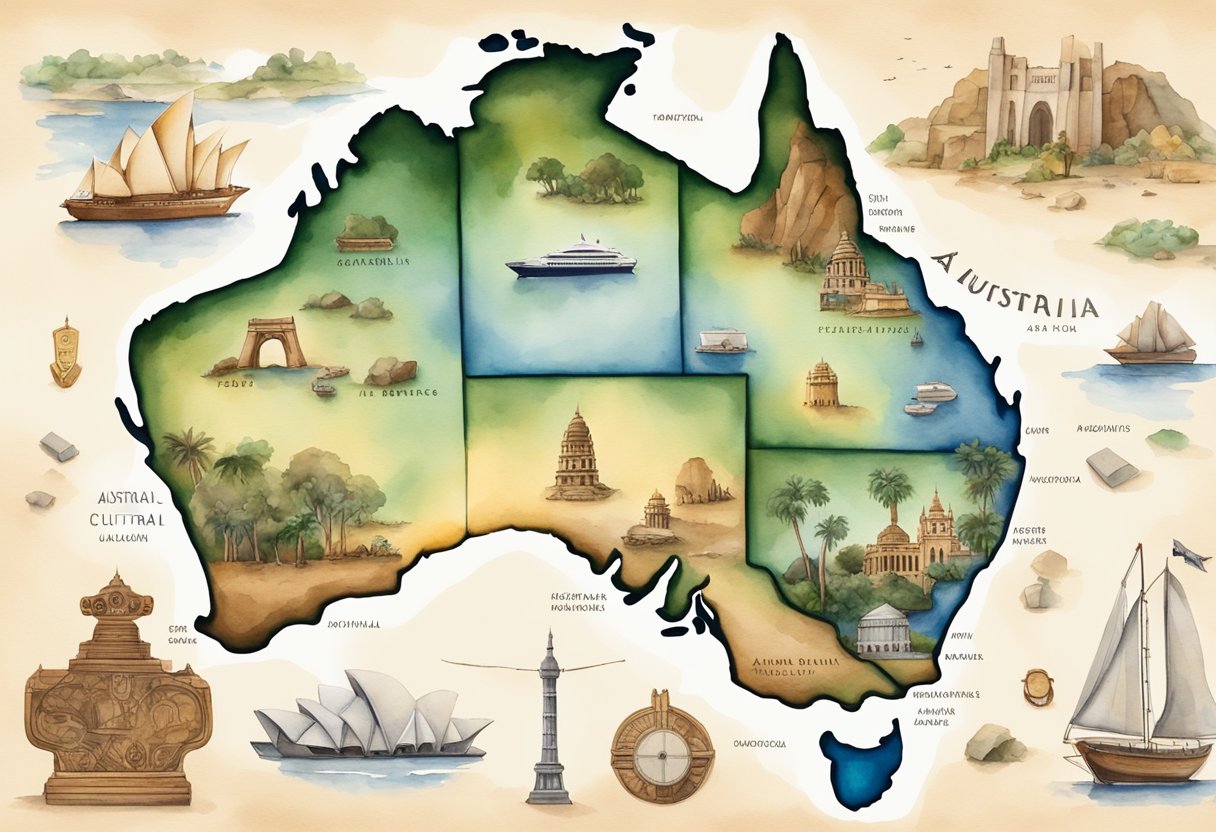
Australia’s hobbies reflect its diverse culture, history, and values. From outdoor activities to indoor pastimes, Australians engage in a variety of leisure pursuits that offer insights into their unique lifestyle.
What are the top activities that Australians enjoy in their leisure time?
Australians often enjoy gardening, fishing, and cooking. These activities provide relaxation and a connection to nature and tradition. Gardening is particularly popular, reflecting a love for outdoor spaces.
How do the cultural traditions of Australia influence its popular hobbies?
Australian hobbies are influenced by the country’s multicultural background. Activities such as barbecuing and playing sports like cricket and rugby stem from British and other cultural influences. These traditions foster a sense of community and national pride.
Can you list common hobbies that reflect Australian values?
Common hobbies embody values such as teamwork, environmental appreciation, and creativity. Engaging in sports, bushwalking, and art-related activities are notable examples. These pursuits highlight Australians’ love for nature and their collaborative spirit.
In what ways do Australian historical events shape current leisure pursuits?
Historical events, like the gold rushes and settlement patterns, have shaped hobbies. Bushwalking and exploring the outback trace back to the pioneering days. This connection to history influences modern Aussies’ adventurous spirit and love for exploration.
What are the most common forms of entertainment enjoyed in contemporary Australia?
Contemporary Australians enjoy watching TV and DVDs, reading, and cooking. These activities are popular for their convenience and ability to fit into a laid-back lifestyle. Organized sports events also attract large audiences.
What hobbies are integral to the Australian lifestyle and cultural identity?
Fishing, surfing, and bushwalking are integral to the Australian lifestyle. They reflect the country’s coastal geography and abundant natural spaces.
Activities such as camping and outdoor barbecues are also fundamental, reinforcing bonds with family and friends.


